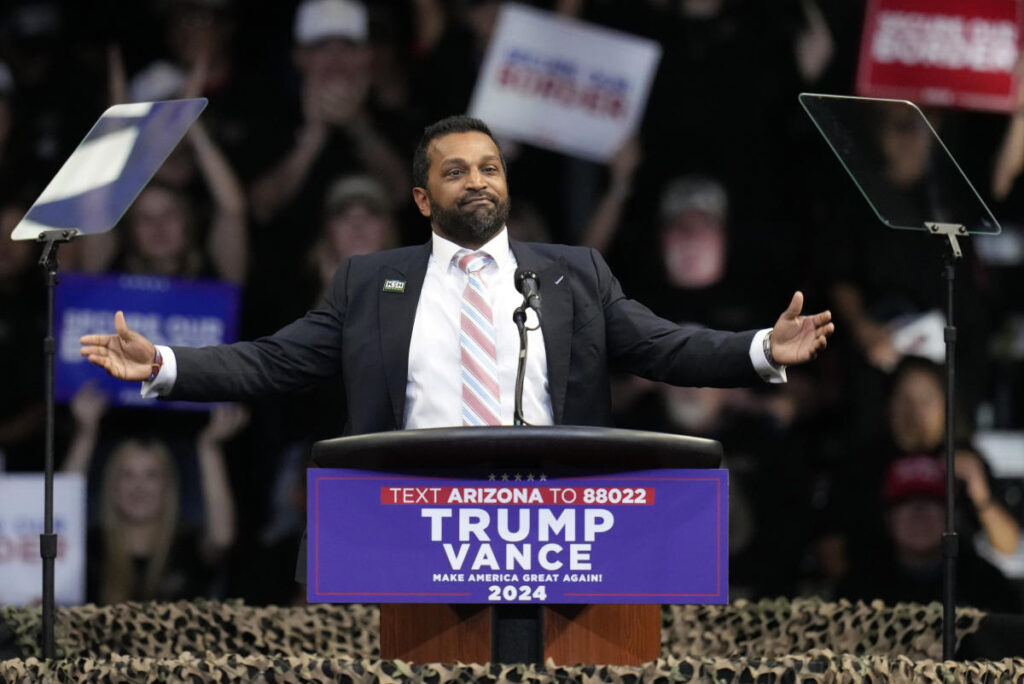Kash Patel, a prominent figure within Donald Trump’s inner circle, is gaining renewed attention following his nomination by Trump to lead the FBI, stirring curiosity and scrutiny from both the public and Congress. His reputation as a staunch supporter of Trump is coupled with a shared skepticism toward the FBI and the broader intelligence community. As Patel prepares for what is anticipated to be a contentious Senate confirmation process, his extreme views on the FBI’s overhaul will likely be a focal point of concern. Over the past year, he has articulated a vision for restructuring the FBI, which raises substantive questions about the practical implications and feasibility of his proposals.
One of Patel’s more striking proposals is the potential closure of the FBI’s Washington headquarters, a structure that has stood in place for over five decades. During a recent interview, he stated his intention to “shut down” the J. Edgar Hoover Building and convert it into a museum representing the “deep state.” His idea includes dispersing the nearly 7,000 employees based there across the country to focus on traditional law enforcement duties. While this proposal resonates with a populist rhetoric aimed at reinstating trust in law enforcement, it is fraught with significant administrative and logistical challenges, suggesting it may merely reflect rhetorical ambition rather than actionable policy.
Patel’s controversial stance extends to what he characterizes as curtailing conspiracies within the government and media. He has indicated a desire to target individuals in both sectors whom he sees as complicit in what he describes as misinformation and electoral manipulation. It remains unclear how this would manifest, particularly regarding law enforcement’s approach to journalists and the potential erosion of protections against unwarranted governmental surveillance. His comments, which hint at revising Justice Department policies influenced by past administrations, raise alarms about the implications for press freedom and the ability of whistleblowers and journalists to fulfill their roles without fear of prosecution.
In addition to these sweeping structural changes, Patel has called for significant reforms to the FBI’s surveillance policies, particularly regarding the Foreign Intelligence Surveillance Act (FISA). He has voiced support for “major, major” reforms that would align him with critics from both sides of the political spectrum, discontent with government surveillance powers. However, this push for reform contrasts starkly with the current FBI leadership’s position, which aims to balance effective intelligence gathering with accountability measures to address past abuses, particularly concerning the data of American citizens collected under FISA.
Moreover, Patel has expressed a preference for reducing the size of the federal intelligence community overall, including key agencies like the CIA and NSA. Within the context of the FBI, he suggests separating the bureau’s intelligence operations from its crime-fighting activities, a notion met with skepticism from former senior officials who argue that such a split would undermine the bureau’s effectiveness. They contend that the FBI’s ability to operate as both a law enforcement and intelligence agency has proven critical in addressing complex threats, particularly in the current environment of heightened terrorist risks.
As Patel’s nomination progresses, it becomes increasingly clear that his vision for the FBI is not only ambitious but also contentious. His proposals reflect a broader political agenda rooted in populist distrust of established institutions. However, the practical challenges posed by his recommendations raise questions about their implementation and efficacy. The ongoing dialogue surrounding his leadership has revealed a crucial tension regarding the balance between safeguarding national security, ensuring civil liberties, and dismantling perceived institutional malfeasance, all of which will shape the future of the FBI and its role within the federal government.

